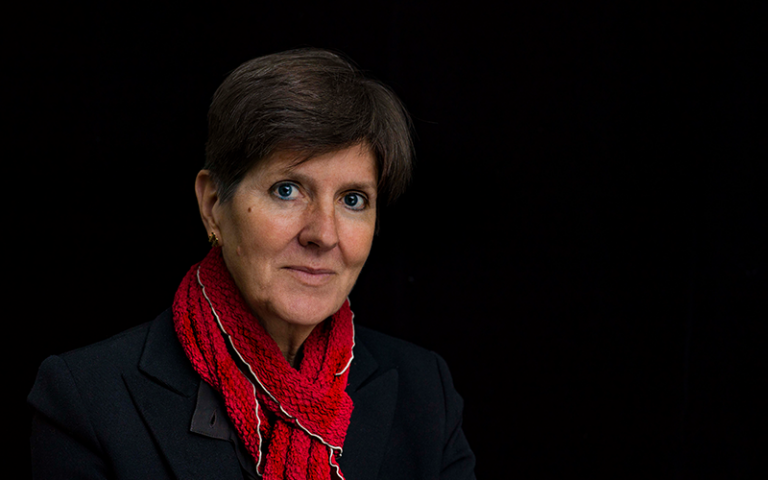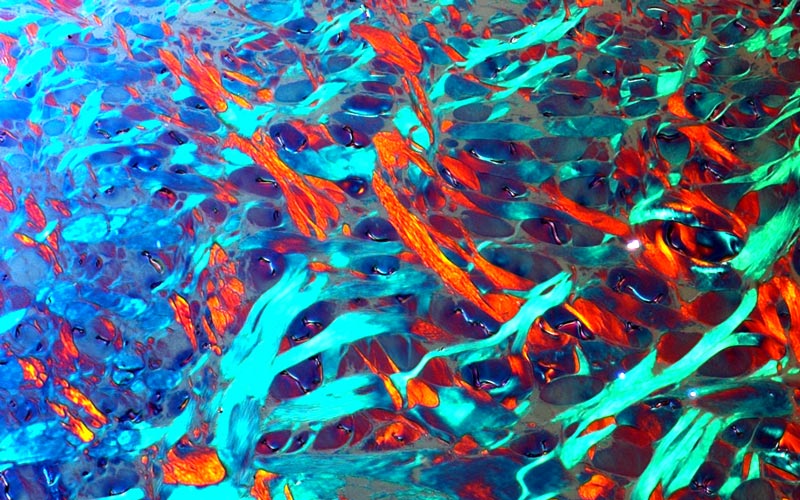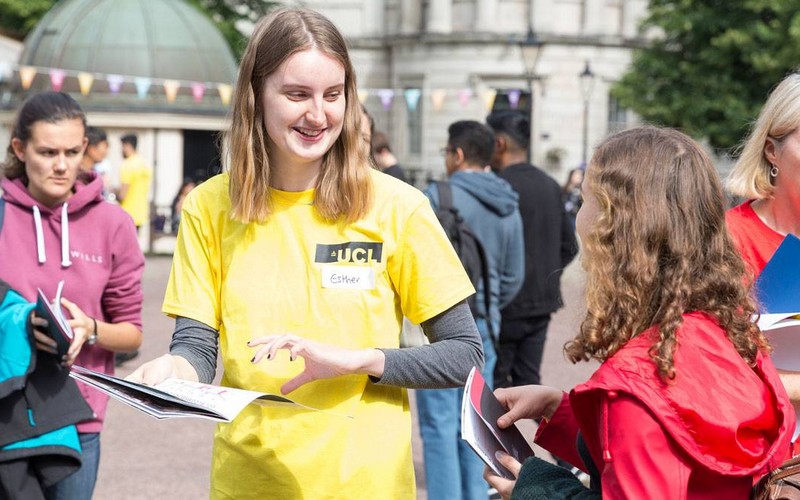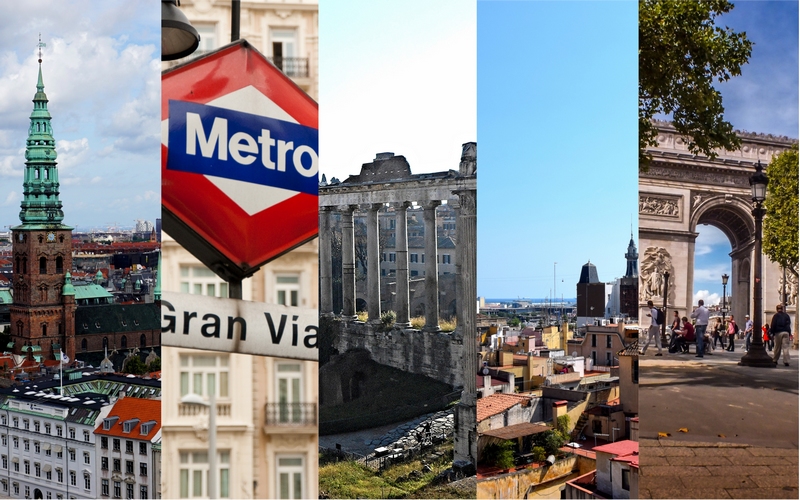Joining the dots
“International connections are terribly important for art students and academics, it’s about swapping ideas, looking and freeing yourself from your prejudices.” – Liz Rideal, Professor of Fine Art

23 April 2021
Liz Rideal proudly describes herself as a ‘European mongrel’. Her mother is French, her father is half Swedish. As a youngster, trips to see family friends in Italy helped fuel Liz’s burgeoning passion for art, which would ultimately lead her to acclaim as an artist in her own right, with solo exhibitions across Europe and America, and work in the collections of such institutions as the Tate, the V&A, the British Museum and the National Portrait Gallery.
But thanks to what she describes as the ‘double whammy’ of Brexit and COVID, Liz is now having to rethink some aspects of her pan-European identity and find new ways to maintain links in countries where her research is focussed. “Unfortunately, Zoom is inadequate for looking at art,” she says. “It denies texture, scale and true colour.”
As Professor of Fine Art in the Painting Department at UCL’s Slade School of Fine Art, Liz’s research has seen her forging many connections in Italy. After holding a Wingate Scholarship at the British School in Rome in 2008, Liz received a Leverhulme Fellowship, allowing her to begin ‘Splicing Time’ - a project connecting the past and present of Rome and the Roman Campagna through digitised historical and contemporary maps and photography.
For ‘Splicing Time’, Liz collaborated with Dr Duncan Hay of the Bartlett Centre for Advanced Spatial Analysis at UCL. She says: “He built the website, and that's been a template for other projects, helping people to think about time, and consider it in terms of the real landscape and buildings.”
To continue her Italian work after her Leverhulme Fellowship, and to facilitate a project called Feu Follet, Liz was able to turn to the UCL Cities Partnership Programme, which supports, funds and promotes the activities that UCL academics carry out with partners in global cities. Liz exemplifies the kind of cross-cultural academics the programme is for.
“ “I am very much enmeshed with a number of Italian institutions,” she says. “The British School, Roma Tre, the University of Rome, John Cabot University. And I have connections with University Orientale in Naples too.”
With so much of the history of art rooted in continental Europe, Liz feels strongly that you can’t research the topic without crossing some borders. Asked if you could study art without travelling, she replies: “I think you could make a very sheltered study, because artists are always going to be making art wherever. But that art will be ill-informed, not connected and not aware, and the longer that situation would go on the worse it would be.”
It is for these reasons that Liz believes the Slade’s international exchange programme is essential, with students heading off to the USA, France, Finland and beyond. “We get their students back and it works brilliantly,” says Liz. “They provoke different ways of looking and being. And these exchanges students make connections which are deep and lasting – and people fall in love! Love is the best way of breaking down barriers between nations. These opportunities need to be cherished. This is how we grow and move our culture along, not by staying in our little hole.”
Liz admits to dismay about Brexit. She says: “I loved it when we went into what we used to call the Common Market. I'm old enough to remember it. I felt whole. And now I feel torn apart. I hate it.” And COVID has of course created an ongoing barrier to international travel. “I’ve got a medical condition, so I won’t be on a plane anytime soon,” Liz adds.
But just as UCL is committed to maintaining and extending its European and global links, Liz is also determined to find ways to continue her research. She has just been granted French citizenship, and so has two passports, which will help immeasurably in terms of EU-based work once the pandemic subsides. Indeed, she is planning a project centred around Queen Christina of Sweden, who abdicated her throne and went to Rome in 1654.
“We haven’t given up on anything,” says Liz. “I think that existing cross-border relationships will carry on, and from there, projects can grow. And those who really want to make new connections will make them. Plus, people will always find ways to travel, no matter how difficult it is, because people will always want to look. Curiosity is a fantastic thing!”
 Close
Close




